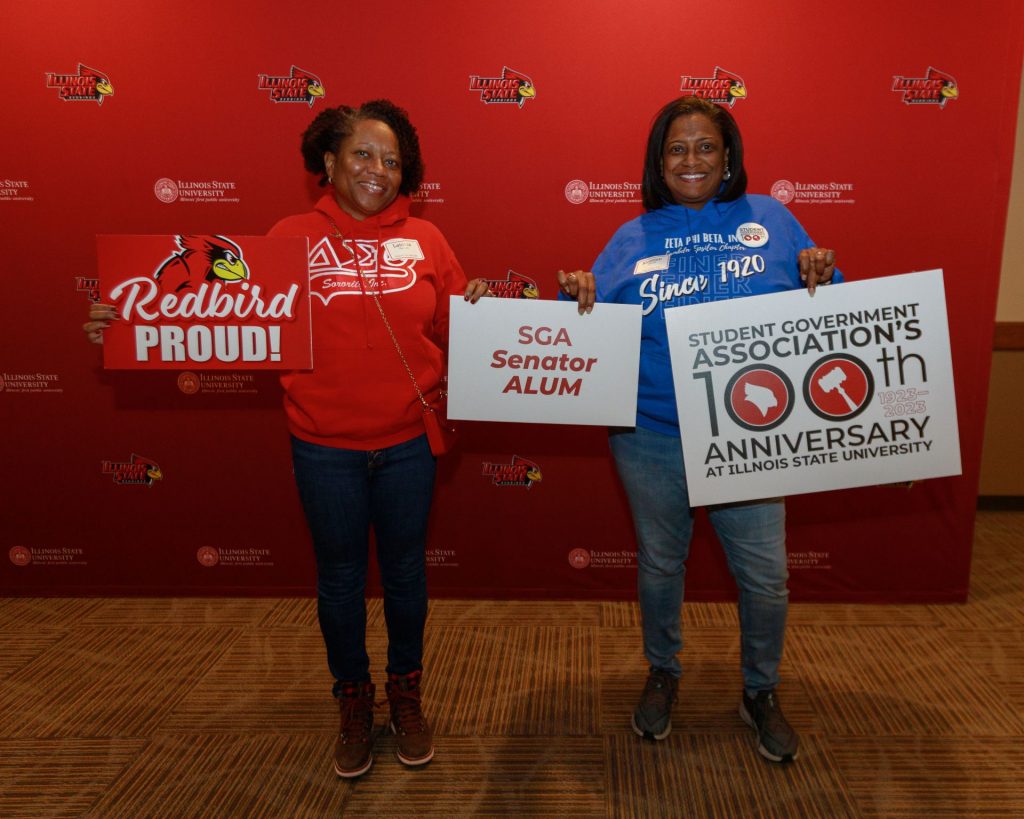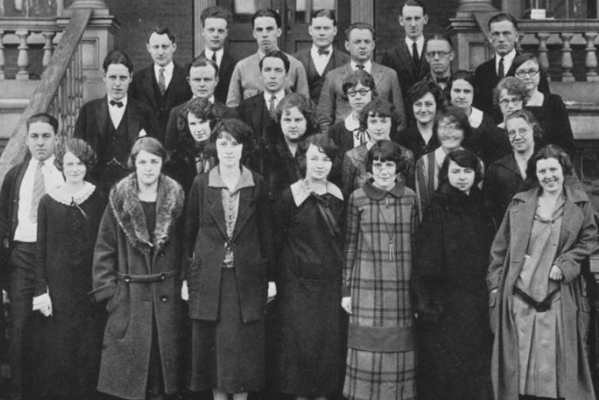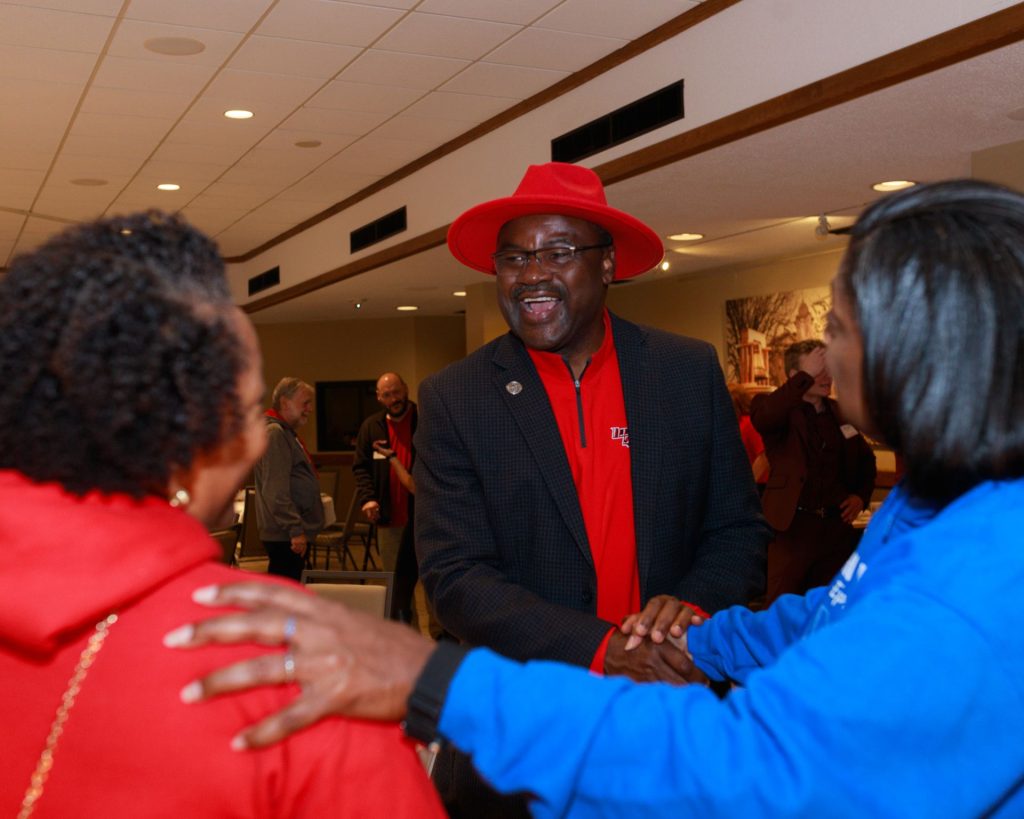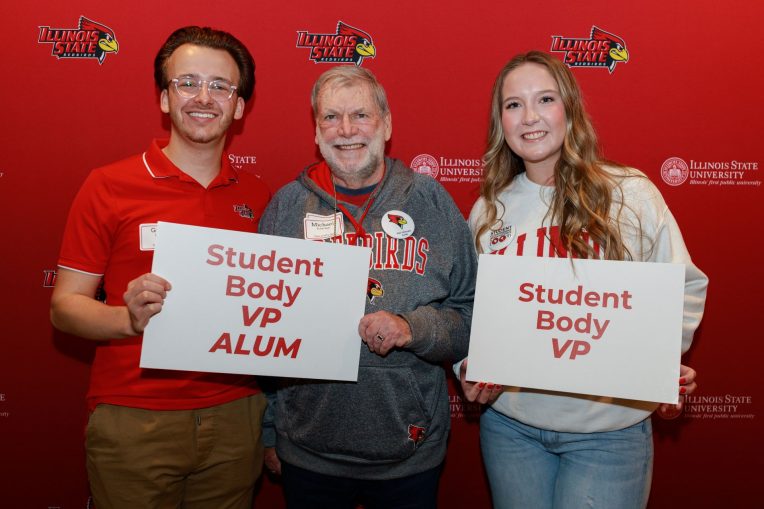Dozens of alumni, faculty, staff, and current students gathered for a breakfast over Homecoming weekend to celebrate 100 years of student government at Illinois State University. The 50 attendees spanning multiple generations shared their student government experiences, which, surprisingly, weren’t all that dissimilar.
“The funny thing is the issues don’t change very much,” said Michael Schermer ’73, M.S. ’78. “What changes is how they’re represented.”
Student government has taken different forms at Illinois State over the years—founded initially in 1923 as a student council, it’s now organized as the Student Government Association (SGA)—but its function has largely remained the same. Through Illinois State’s tradition of shared governance, SGA provides students with a voice and a seat at the decision-making table.
Schermer attended the Homecoming event, and his connection to student government runs deeper than most; he was a student senator as an undergraduate and vice president of the student body as a graduate student before beginning a career as a staff member at Illinois State in which he served as advisor to student government for 20 years.

Over 2,000 alumni have served in student government roles, and Schermer has more personal connections to that group than most.
“Student government has changed as students have changed and society has changed, but the forms aren’t as important as the people involved in it,” he said. “How effective the student leaders are—that’s what’s most important. The personalities of those students are what drives student government.”
Countless positive changes for students have been orchestrated by student government over the past century. Schermer could point to several, but he’s reminded of one such example every time he sees an Illinois State-branded Connect Transit bus driving through town.
“Another student organization, the Red Tassel Chapter of Mortar Board, got that service rolling, but student government really made it what it is today,” he said.
The free-ride program had humble beginnings. The service started with a small fleet of university vehicles and a few paid student drivers but quickly outgrew its means due to overwhelming demand. Then-SGA president Jennifer Cowsert ’95 proactively began a dialogue with Bloomington-Normal Public Transit before connecting with Schermer, the SGA advisor at the time. The pair went to then-Vice President for Business and Finance—and future university president—David Strand to discuss how to pay for it with student fees.
“So now this little student organization thing that started as a safe, free-ride service has turned into free bus service anywhere in town for all students, faculty, and staff,” Schermer said, laughing.

There have been some contentious moments between student government officials and university administration over the past 100 years. But student government alumni indicate the interactions are mostly positive.
“Some of the folks that were in student government at the time called me a turncoat,” Schermer said, referencing his change in roles from student government representative to student government advisor. “It was the ’70s after all, and that was the attitude then, but the smart ones used me to help them further their causes.”
Current student body president Eduardo Monk Jr. said the notion that relations between student government and administration are mostly adversarial is false.
“I think that’s one of the big misconceptions: that the administration is this far-off entity that doesn’t know or care about students’ best interests,” Monk said. “The more I’ve been in this role and work with administrators, I’ve learned it’s the exact opposite. These people chose their careers because they enjoy working with students, and they want what is best for students.”
Monk wants that, too, and he’s spending his final year in SGA focused on mental health. Working with other state universities and state government officials, Monk and others have introduced an amendment on the Mental Health Early Action on Campus Act in the Illinois General Assembly that will expand college students’ access to mental health days.
“I believe mental health is the single most important factor in people’s lives,” Monk said. “So, stepping into this student government role, I knew I wanted to be able to use this position to really fight for mental health and do everything that I could for students.”

Student government makes a positive difference in the lives of current students, but it also develops civically engaged, community-minded leaders.
That’s been the case for 100 years.
“It’s a very important leadership and developmental experience for student leaders,” Schermer said. “There are people that come from a lot of different majors and backgrounds, and it’s been a mechanism for people to learn how to become community leaders.”

